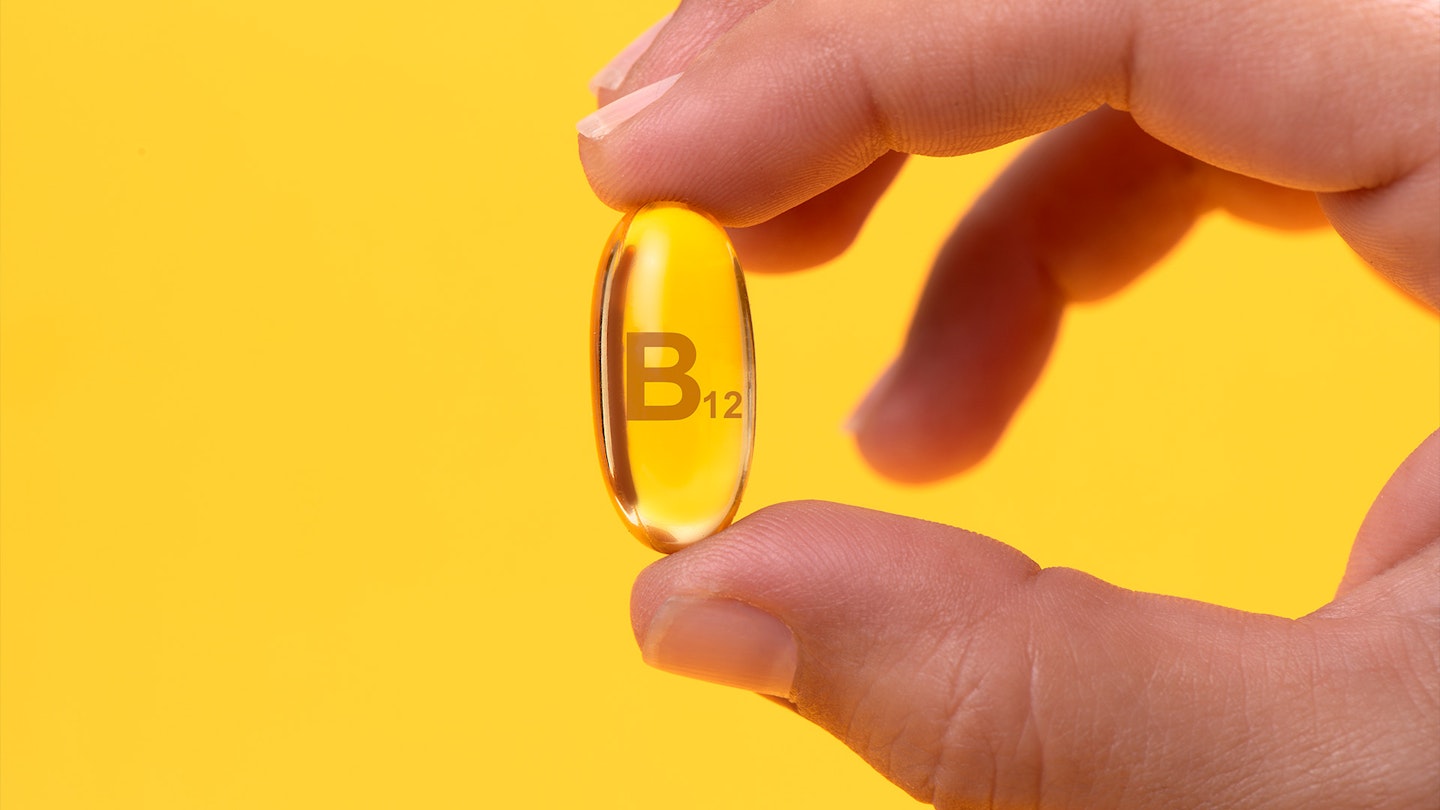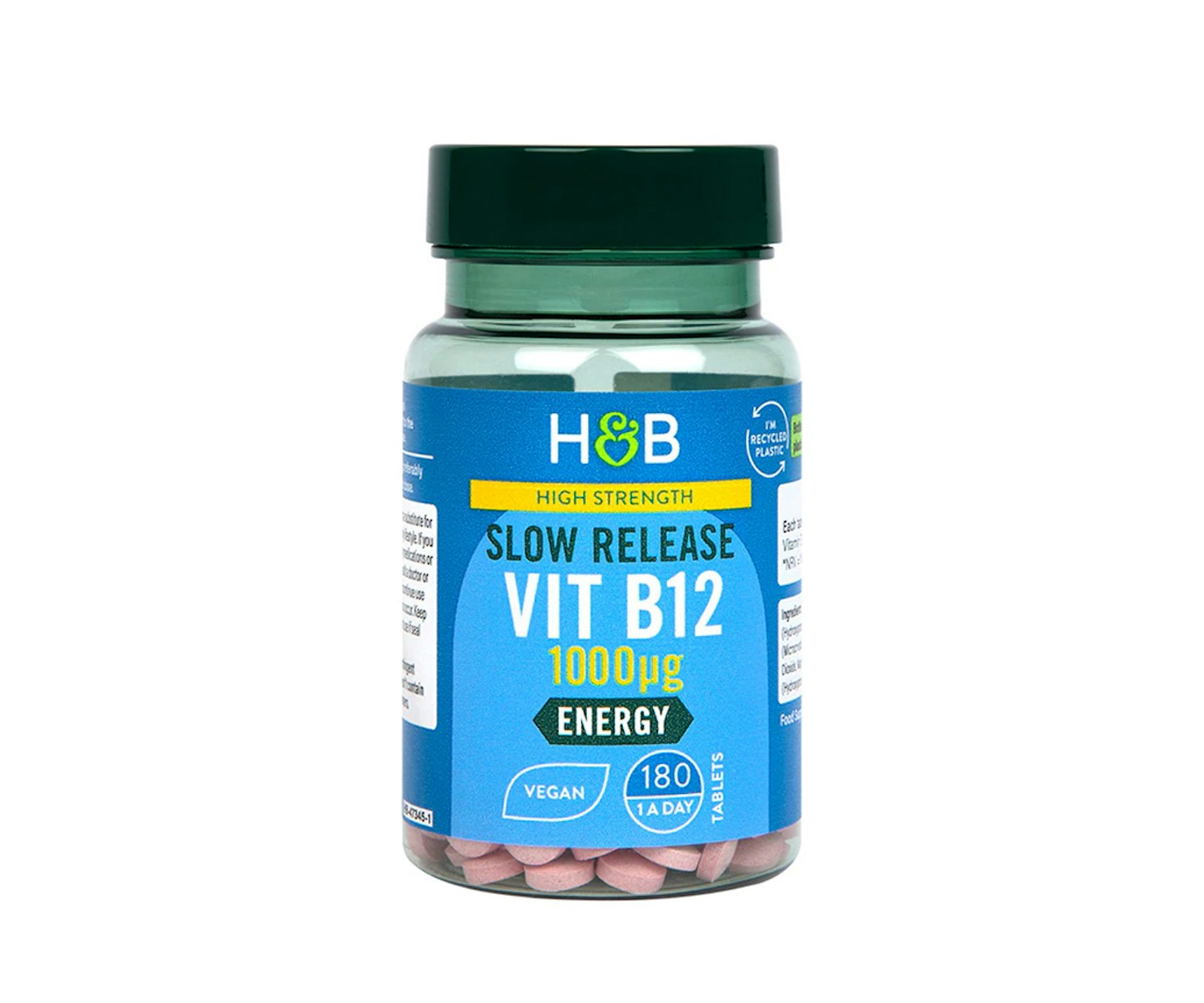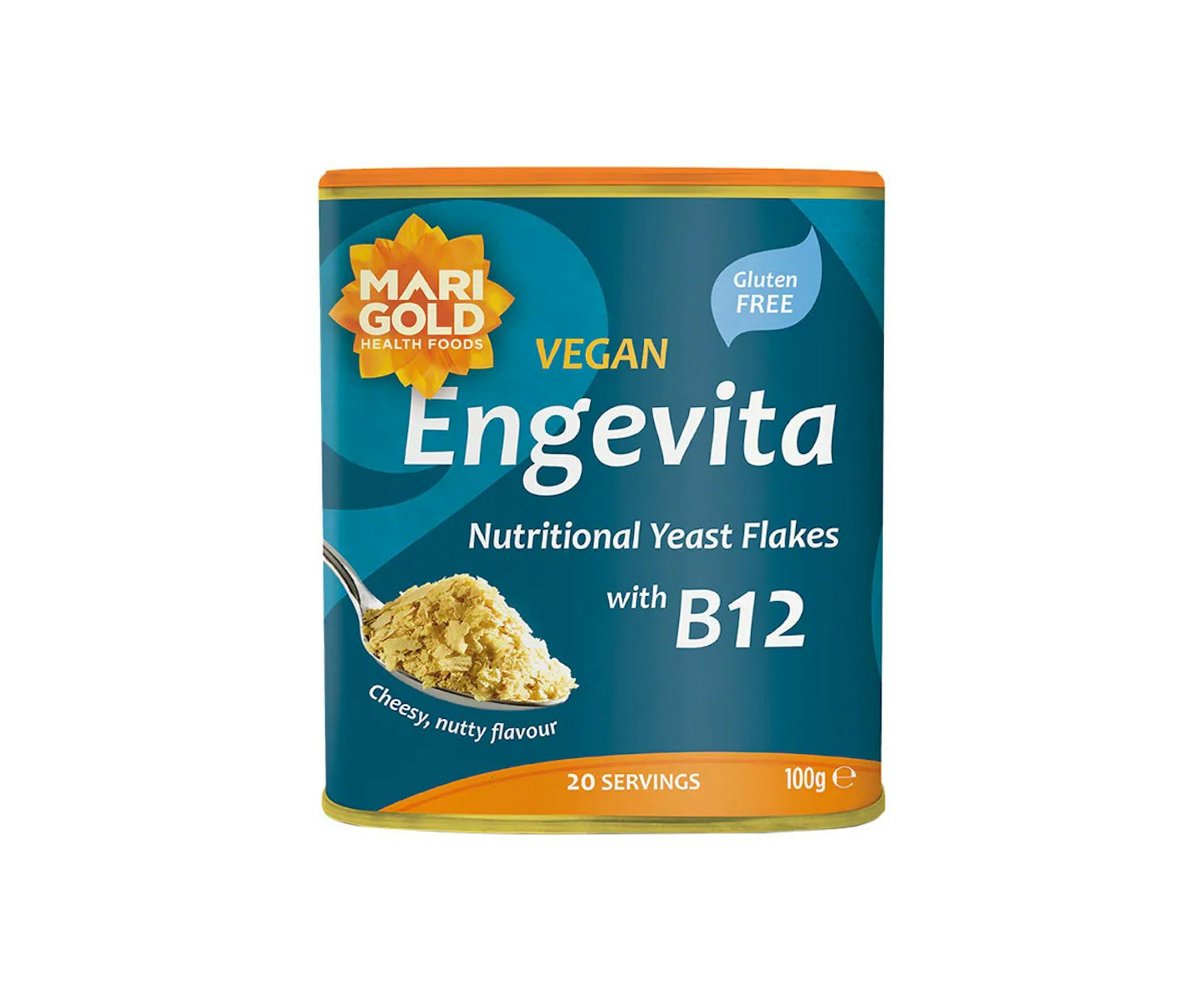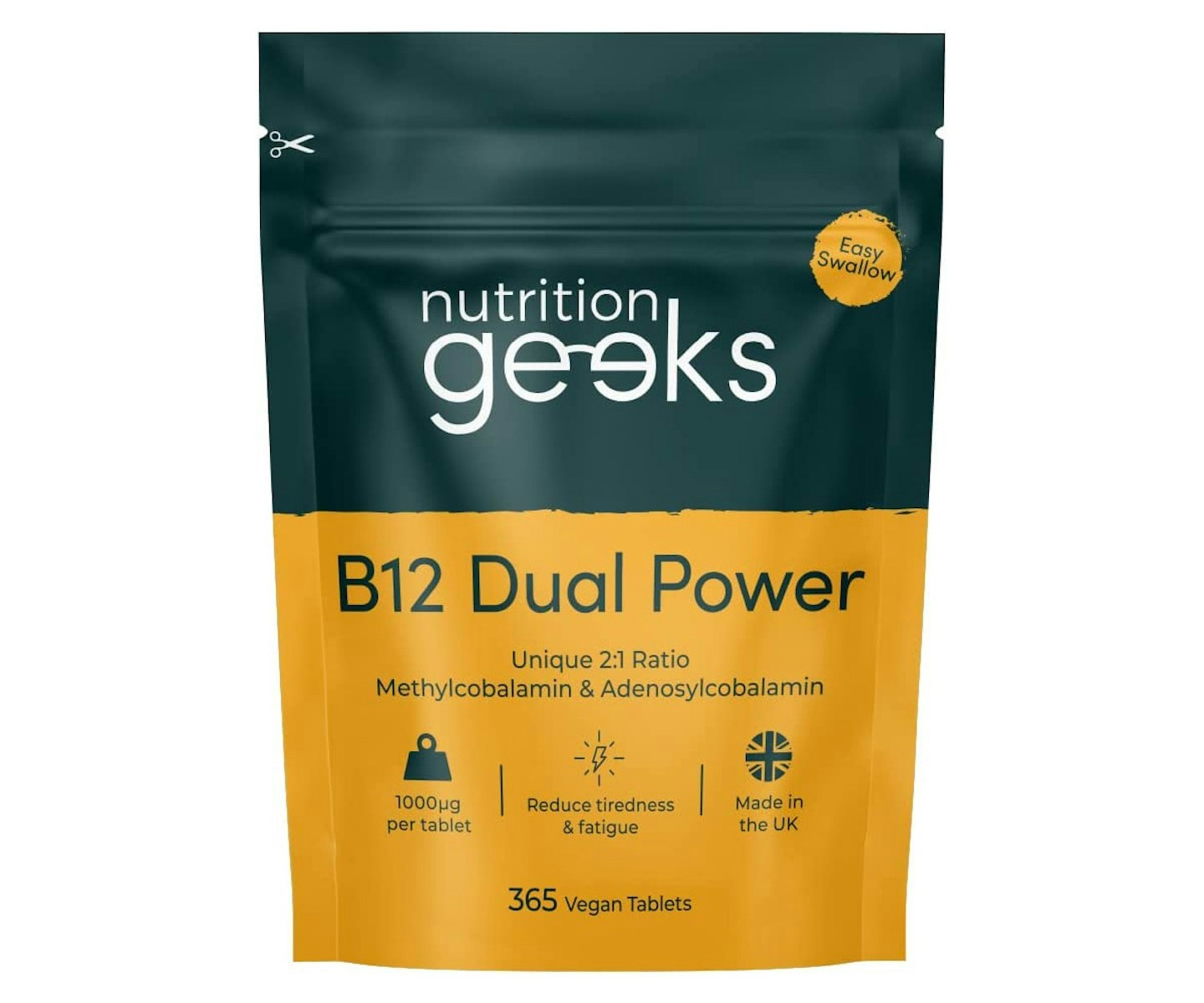If you're experiencing body aches, brain fog or constant fatigue, it might be time to invest in the best B12 supplements. With people eating more plant-based diets or reducing their intake of animal products, it's now recommended to try to use B12 multivitamins. This is to ensure you are not developing a vitamin deficiency.
As you dive into 2024, arm yourself with the vitality-boosting benefits of B12, a key player in the energy production game. Say goodbye to fatigue and hello to a revitalised you, ready to seize each day with gusto.
The best B12 supplements at a glance:
• Best overall B12 supplements: Solgar Vitamin B12 1000µg 100 Nuggets - View now on Hollandandbarret.com
• Best B12 supplements for timed-release: Holland and Barrett High Strength Slow Release Vitamin B12 - View now on Amazon.co.uk
• Best flaked B12 supplements: Marigold Engevita B12 Yeast Flakes 100g - View now on Amazon.co.uk
Vitamin B12 is an essential nutrient that contributes to the proper functioning of the brain and nervous system. It is also involved in red blood cell production and protein, fat, and carbohydrate metabolism - so don't neglect this element of your diet.
In this article, we round up the best B12 supplements, from tablets to delicious gummies, to help you fill the nutrient-tough spots in your diet.
The best B12 supplements
Best overall B12 supplement
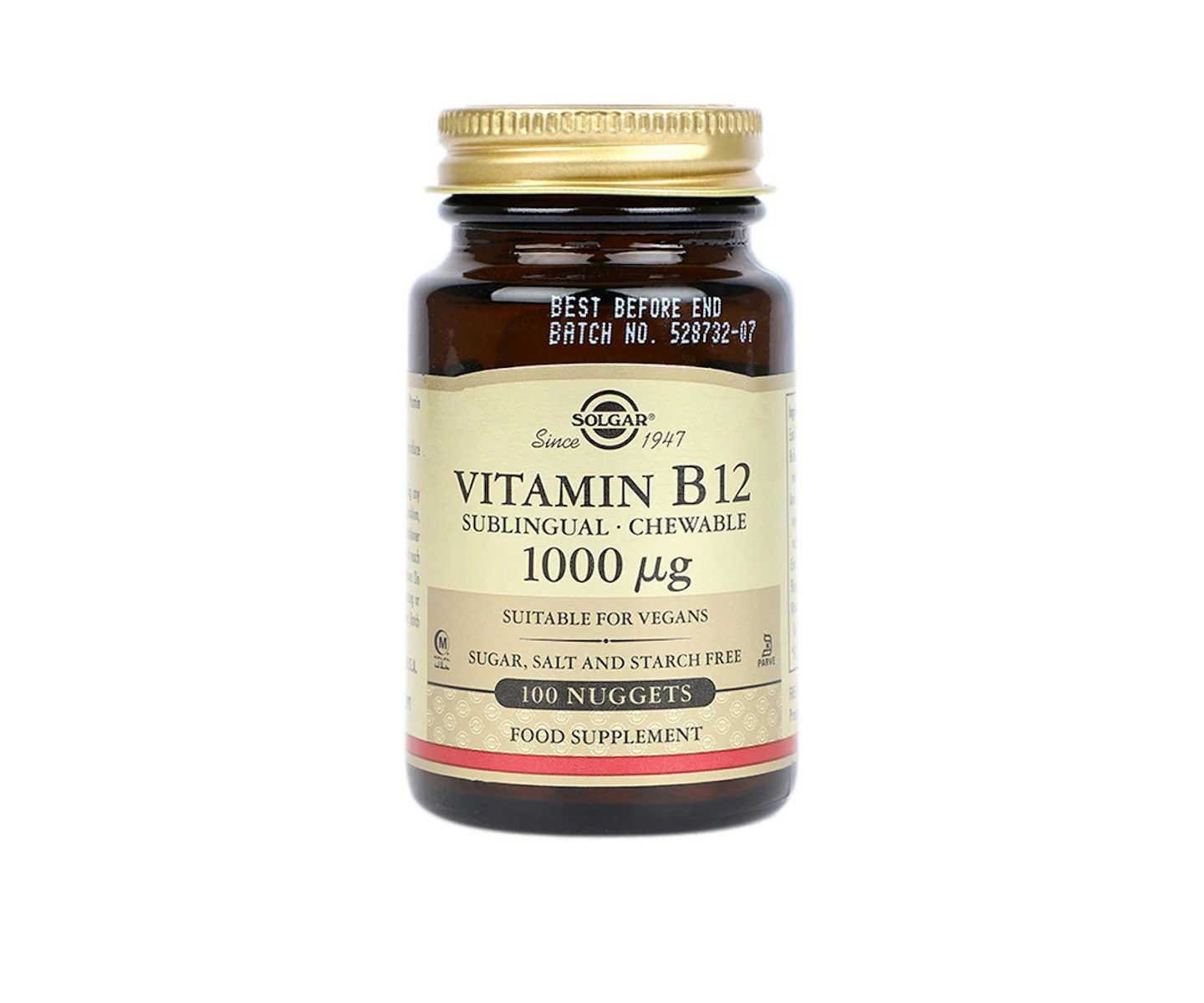
www.hollandandbarrett.com
Description
If you prefer chewable tablets to capsules, then you can get your vitamin B12 with a subtle cherry flavour; you won’t want to miss this out of your morning schedule. Made from Cyanobalamin (vitamin B12), the 1000g nuggets come in a glass jar and will help support vegan diets and reduce fatigue.
Pros
- Chewable alternative to capsules
- Good cherry flavour
- It comes in a glass jar
Cons
- The artificial cherry flavour may not be for everyone
Best B12 supplements for timed-release
Description
This is a good choice if you are looking for a supplement purely for vitamin B12. These timed-release vitamin B12 tablets get slowly released over time to provide you with a steady level of the vitamin. Take it daily, and before you know it, it will become an automatic habit.
Pros
- Specifically targeting B12 levels
- Slow-releasing
- Good value
Cons
- Not a multivitamin
Best flaked B12 supplement
Description
A cooking stable in plant-based diets - nutritional yeast has a lovely nutty and slightly cheesy flavour that is perfect for adding to cheese sauces, sprinkling over pasta or adding to salad dressings. Not only does it taste excellent, but it is packed with B12 too. Marigold’s Engevita yeast flakes with B12 provide a source of protein and fibre, as well as B vitamins and minerals and is a natural food grown on organic beet molasses.
Pros
- Delicious cheese and nutty taste for vegan cooking
- Sprinkle on savoury meals
- A good food source of vitamin B12 for plant-based diets
Cons
- Not something you may use daily
Best oral spray B12 supplement
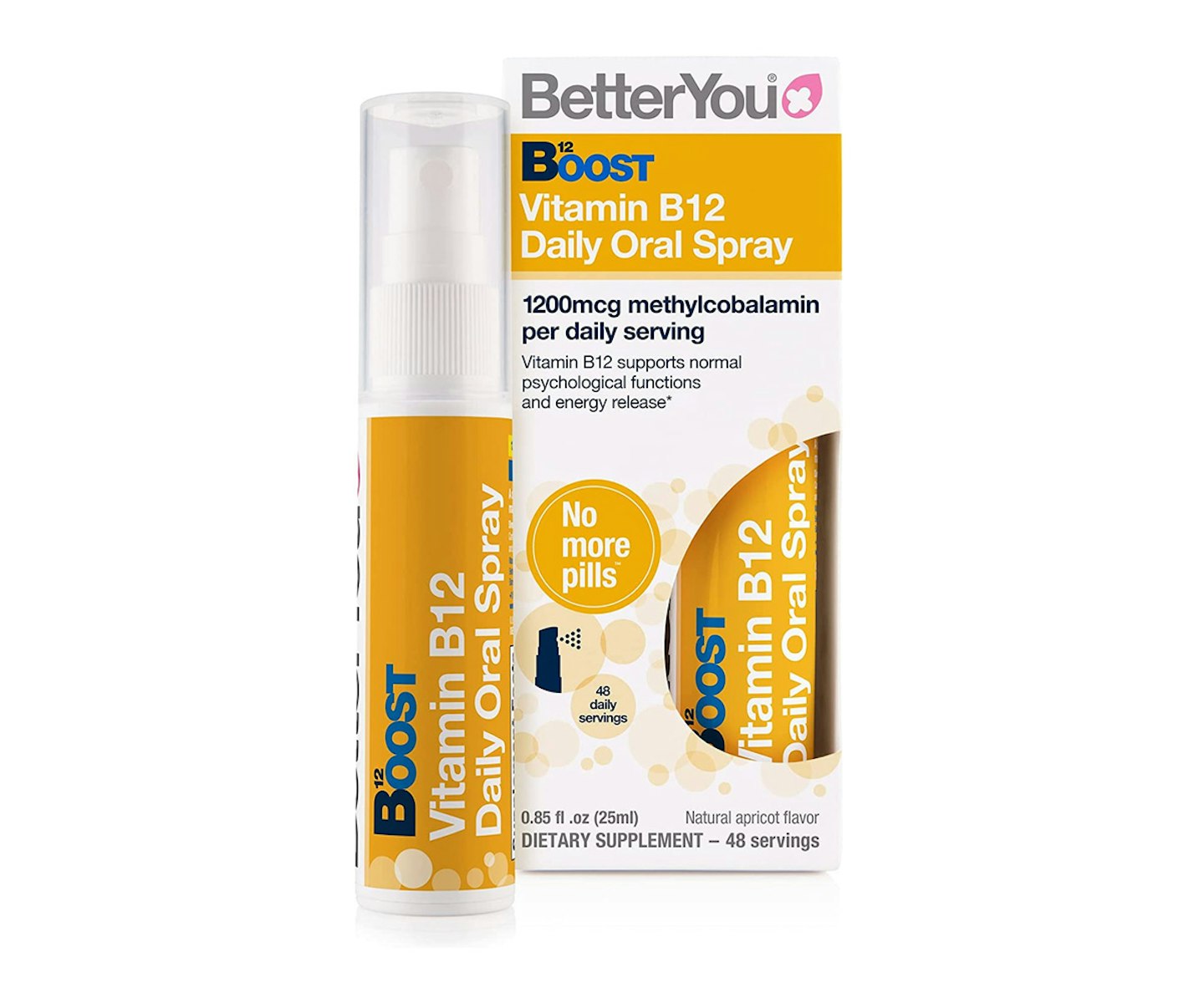
Description
This apricot-flavoured oral spray is a great alternative to capsules of tablets and can easily fit in your handbag or carry-on when travelling. With four sprays delivering 1,200µg of vitamin B12ml, this supplement is easy to integrate into your daily routine. Plus, the packaging is made from ocean plastic, too, making it a more suitable option.
Pros
- An excellent alternative to capsule supplements
- Some people may find that vitamins transport better in the body in liquid form
- Travel-size
- Nice flavour
Cons
- The spray pump in the container may get jammed
Best liquid B12 supplement
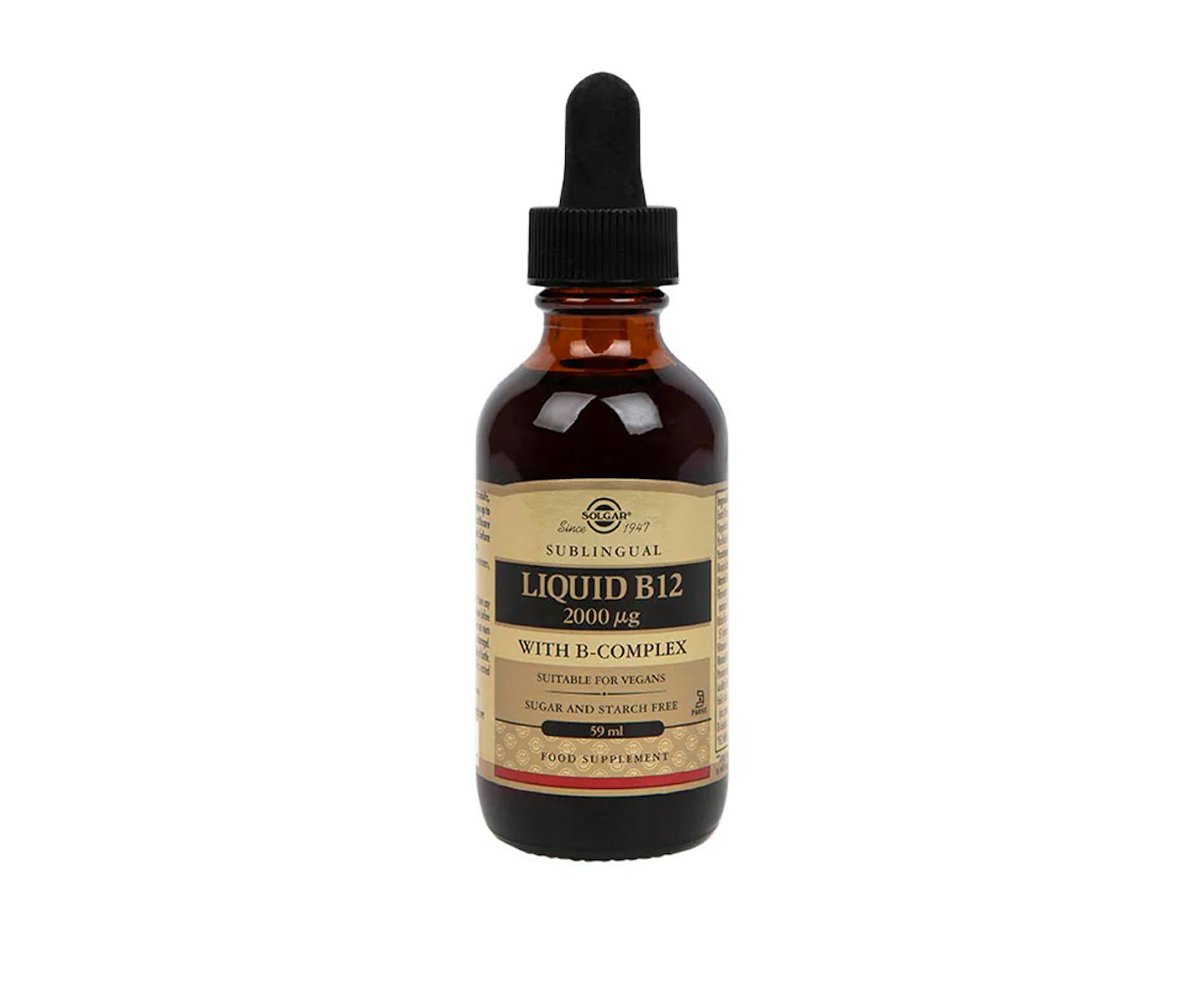
www.hollandandbarrett.com
Description
This liquid B-Complex supplement has 2000µg that helps promote the health of the nervous system and healthy blood cell formation, supporting energy metabolism with Vitamin B12, in particular contributing to normal energy-yielding metabolism and the reduction of tiredness and fatigue. This high-strength formula works as an excellent B-Vitamin allrounder if that is an area you are deficient in.
Pros
- An alternative to supplements
- Some people may find that vitamins transport better in the body in liquid form.
- Strong potency
Cons
- Artificial cherry flavour
Best B12 supplement with two active forms of B12
Description
Each pouch contains 365 B12 vitamins, one for each day of the year. The tablets provide two forms of B12 - Methylcobalamin and Adenosylcobalamin in this unique 2:1 ratio. Clinical studies show that when both forms are combined, it is superior for treating B12 deficiency. The Nutrition Geeks' Vitamin B12 tablets provide 1000μg per dose, are post-box friendly, and are made with minimal plastic packaging making them easy to store and take on the go.
Pros
- Small capsules and less packaging
- Suitable for travel and on-the-go
- Each tablet includes adenosylcobalamin and methylcobalamin - both forms our body needs.
Cons
- None we can think of
Best B12 supplement for fatigue
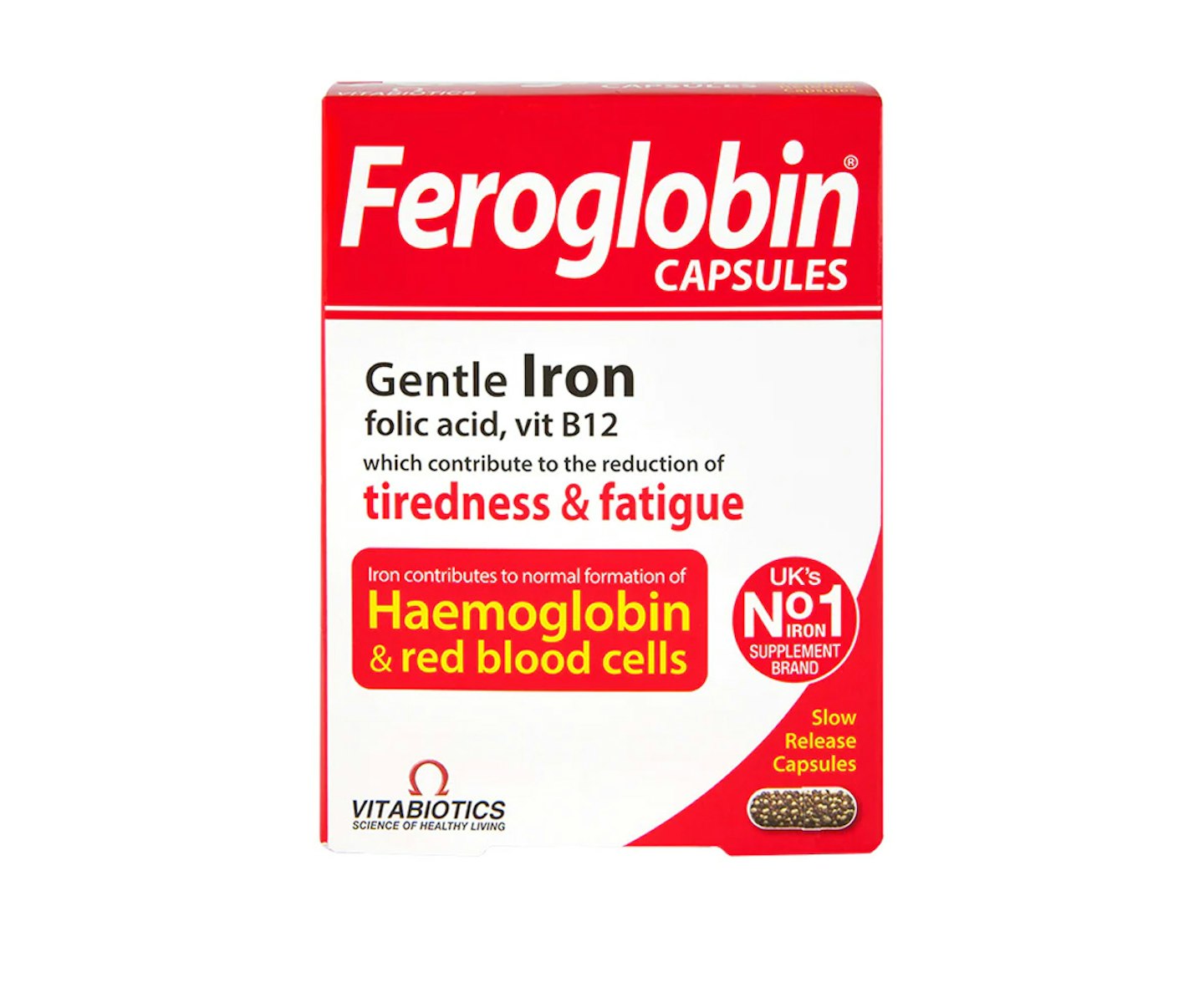
www.hollandandbarrett.com
Description
If you are generally tired and lack iron and B vitamins in your diet, this would be an excellent choice. Made with halal gelatine, these supplements are not suitable for vegetarians or vegans but offer a gentle iron supplementation with zinc with vitamin B complex, formulated to supply iron to the body that supports haemoglobin while remaining gentle for your digestive system and will not make you prone to constipation.
Pros
- It contains iron and folic acid to help with fatigue
- Supports haemoglobin and red blood cells as well as B12 levels
- Not constipating
Cons
- Not suitable for vegetarians and vegans as it is made from halal gelatine
Best combined vegan multivitamin
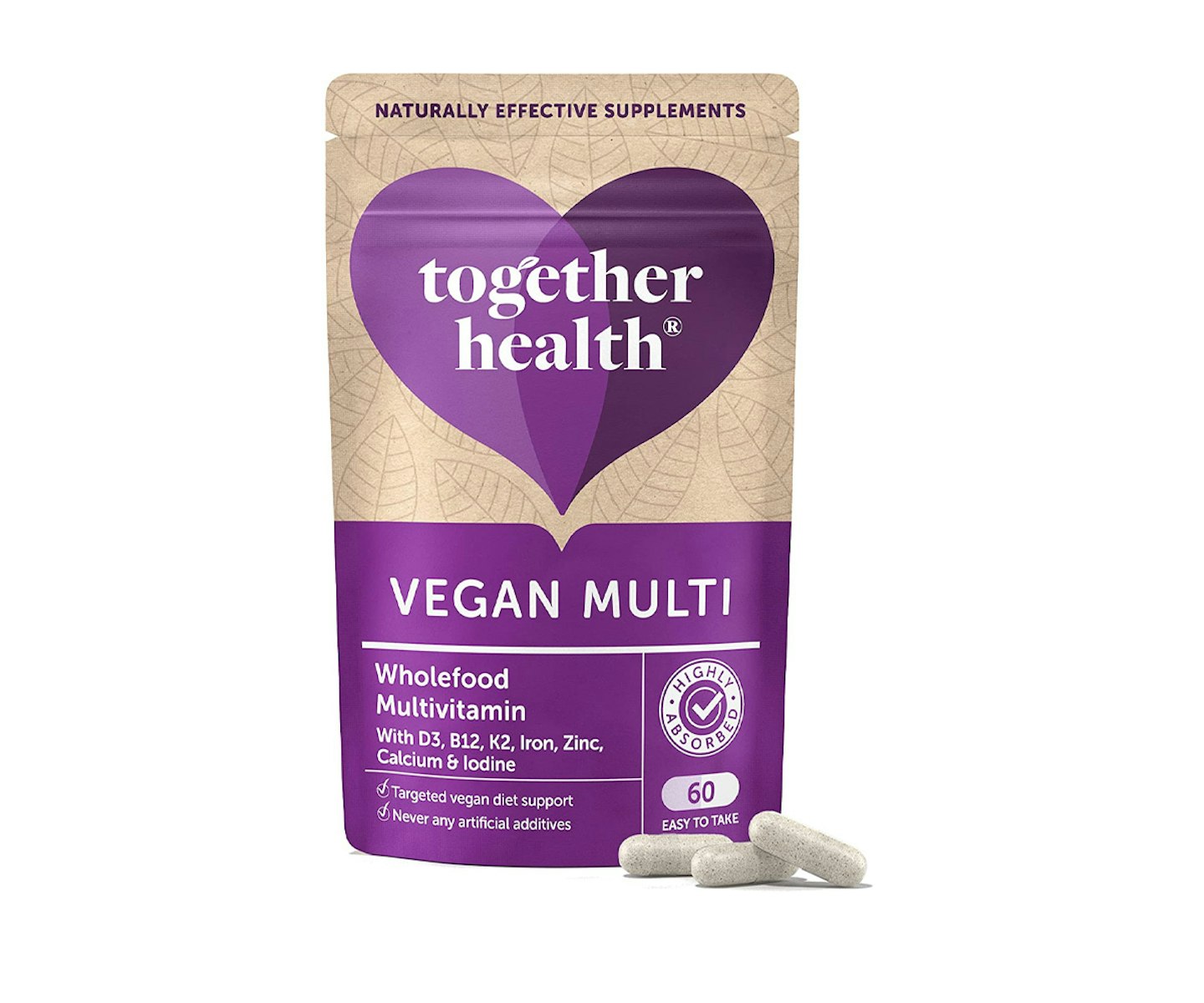
www.hollandandbarrett.com
Description
If you are looking for a multivitamin to support the gaps in your vegan diet, perhaps you don't eat many animal products and could do with a bit of top-up. This vegan multivitamin contains six essential vitamins and minerals, including iodine, zinc, B12, gentle food-based iron and seaweed-based calcium. The capsules are also plastic free, made from bio-based layers of materials made up of cornstarch, paper and wood pulp so that you won't be ingesting any micro-plastic. Take two capsules a day to counteract any vitamin deficiencies.
Pros
- Good general vegan multivitamin
- It uses a small amount of packaging
- No microplastic casing for the capsules
Cons
- Quite pricy for one month of capsules
Vitamin B12 FAQs
What is Vitamin B12?
Dietitian Dr Carrie Ruxton from the Health and Food Supplements Information Service states that 'vitamin B12 is a water-soluble vitamin of the vitamin B group. It is present in some foods, added to others and is available as a dietary supplement – either on its own or in a multivitamin product to help you feel your best. It is required for the development and health of nerves and red blood cells for DNA synthesis. B12 also helps with the activity of several enzymes involved in metabolism.'
What is the most common cause of B12 deficiency?
Some vitamins can only come from animals or are more challenging to get from plants and may require supplementation depending on your individual health needs. It is common for some people to develop a vitamin B12 deficiency due to not getting enough vitamin B12 from their diet. A diet that contains meat, fish and dairy products usually provides enough vitamin B12, but people who do not regularly eat these foods can become deficient.
Dr Miriam Adebibe, a wellness doctor, a clinical fellow in bariatrics and the co-founder of skin clinic Victor & Garth, explained to us why it’s so important to ensure you’re getting the right vitamins. This is especially important if you’re following a vegan diet. Especially B12, which substantial research has shown that at least 40% of us are deficient in - as the body obtains B12 through animal protein.
'I think of Vitamin B as a youth vitamin’, Dr Mariam tells us. 'It’s required by every single cell in the body to divide and multiply, which means that if your cells are deficient in B12, every cell will multiply in a deficient state and therefore produce further deficient cells.'
If you lack energy or feel a little low, these are common signs of a vitamin B12 deficiency that can easily be attributed to other factors. 'Vitamin B12 deficiency can wreak havoc with the body - if you’re deficient in B12, your cells will renew in a deficient state, resulting in new skin cells that are also deficient. Not only does vitamin B benefit the body and immune system, but it also increases mood, energy, metabolism and anxiety. It also provides better focus and supports healthy hair, skin and nails.'
Where there used to be high levels of Vitamin B12 in the soil, with modern-day intensive farming, the soil quality has declined – even animals are given vitamin supplements now.
Dr Mariam suggests eating foods fortified with vitamin B12 if you are plant-based, such as yeast extract, non-dairy milk and cereals and taking a supplement with vitamin B12 to ensure you do not become deficient.
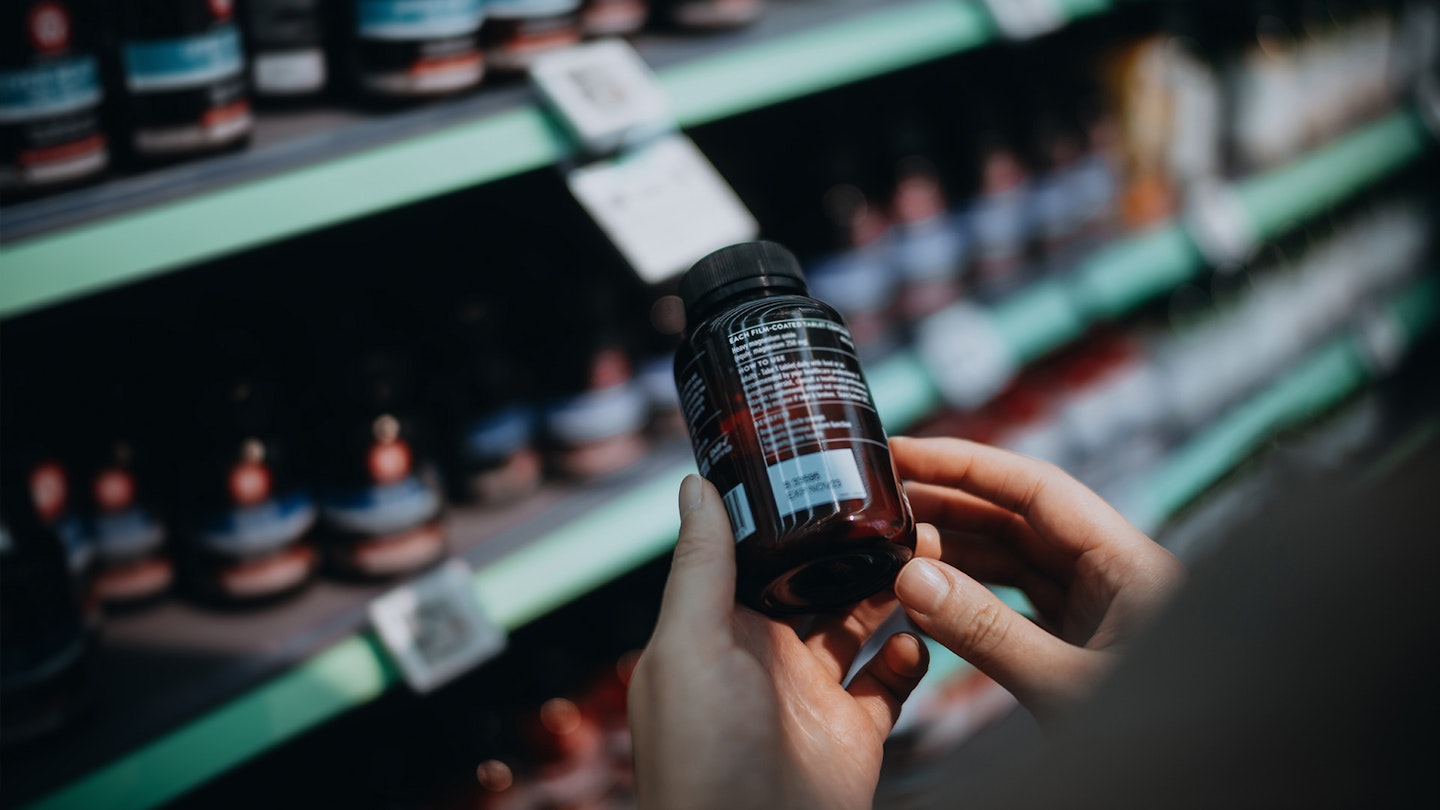
How much B12 do you need?
According to the NHS, adults (aged 19 to 64) need about 1.5 micrograms a day of vitamin B12. If you eat a diet with meat, fish or dairy foods, you should be able to get enough vitamin B12 from your diet. However, as vitamin B12 is not found naturally in foods such as fruit, vegetables and grains, vegans may not get enough of it. If you have a B12 deficiency, you will need to take 1,000ug of B12 daily.
What Are the Four Types of Vitamin B12?
Most commonly referred to as Vitamin B12, the vitamin does, in fact, exist in four very similar chemical forms, called: Methylcobalamin, Adenosylcobalamin, Cyanocobalamin and Hydroxocobalamin.
Methylcobalamin and Adenosylcobalamin are both naturally occurring co-enzymes that are found in food sources such as animal products and certain foods fortified with the vitamin. They work synergistically in slightly different ways to cover most of your Vitamin B12 needs.
Cyanocobalamin is a synthetic form of Vitamin B12, which the body converts into Adenosylcobalamin and Methylcobalamin before it can be used. This is the most common and cost-effective form of Vitamin B12, Cyanocobalamin, that you will find in food supplements and some fortified foods such as cereals.
Hydroxocobalamin is a highly bioavailable form of Vitamin B12 that is used to treat people with serious vitamin deficiencies. You won't find this form in supplements as it is only available on prescription and is usually administered by intramuscular shot or in an IV drip.
What are the sources of Vitamin B12?
According to Healthline, good sources of vitamin B12 can be found in meat, liver, kidney, poultry, fish, eggs, dairy products and fortified breakfast cereals.
Who is at risk of Vitamin B12 deficiency?
The NHS states that a vitamin B12 deficiency can be the result of a variety of problems or dietary choices. For example, vegans and vegetarians who don't consume many animal products are at risk of deficiency because they eat little to no animal foods, which are the best sources of vitamin B12 in a diet.
Other than vegans, older people are commonly at risk of a vitamin B12 deficiency as B12 requires a substance known as an extrinsic factor found in the stomach acid for its absorption. Older individuals often have a lack of stomach acid and have difficulty absorbing B12.
Some medications, such as proton pump inhibitors (e.g. omeprazole) which inhibit gastric acid, can reduce the absorption of vitamin B12. Metformin which is commonly used in the management of diabetes mellitus can also reduce the absorption of vitamin B12.
Although supplementation is important, it is also important to ensure you speak to your GP if you think you are B12 deficient. These conditions can often be diagnosed based on your symptoms and the results of a blood test if you could be anaemic.
What are the symptoms of vitamin B12 deficiency?
Healthline states the symptoms of vitamin B12 deficiency tend to develop gradually and are wide-ranging. They can include:
• Extreme tiredness
• Lack of energy
• Disturbed vision
• Psychological problems, such as depression and confusion
• A sore tongue
• Problems with memory
What are the benefits of Vitamin B12?
Vitamin B12 (alongside other nutrients such as iron) helps to ensure that you have healthy red blood cells and healthy body cells (cells other than blood cells). "Alongside other B vitamins, it helps to ensure energy is released from the food you eat. It also helps (alongside many other vitamins and minerals) to keep your immune system healthy and functioning well," says Dr Carrie.
If you lack energy and think you could be deficient in Vitamin B12, here are the best B12 supplements for every budget and preference.
Ellen Kinsey is a writer for What's The Best, and also writes for Yours, A Modern Kitchen, Modern Gardens, Heat, Closer and Grazia. She has a passion for cooking, health and wellness.
Subscribe to the What’s The Best Newsletter to keep up to date with more of the latest reviews and recommendations from the What’s The Best team.
